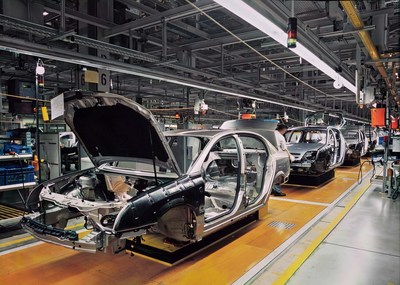Thailand’s Automotive Sector Unites for a Resilient, Ethical Future Amid Global Disruptions
Thailand's automotive manufacturing sector is a vital pillar of the national economy, contributing nearly 10% to GDP and employing around one million workers.

- Country:
- Thailand
Amid growing global economic instability, political tensions, and evolving technological landscapes, Thailand’s automotive sector is taking a bold step toward long-term resilience and sustainability. On April 29, 2025, the country hosted its first-ever National Industry Dialogue for a Responsible and Sustainable Automotive Supply Chain in Bangkok. This milestone event brought together a broad coalition of over 100 key stakeholders from across the automotive value chain.
Supported by the International Labour Organization (ILO) and funded by the Government of Japan under the Resilient, Inclusive and Sustainable Supply Chains (RISSC) project, the dialogue emphasized the sector’s collective commitment to responsible business conduct, sustainable growth, and the promotion of decent work conditions.
A Critical Industry Facing Complex Pressures
Thailand's automotive manufacturing sector is a vital pillar of the national economy, contributing nearly 10% to GDP and employing around one million workers. However, the sector is under increasing pressure to adapt as global supply chain expectations shift, influenced by trade disruptions, geopolitical tensions, digital transformation, and a growing emphasis on Environmental, Social and Governance (ESG) standards.
International expectations now demand that automotive companies demonstrate greater accountability through processes such as Human Rights Due Diligence (HRDD). HRDD involves identifying, preventing, mitigating, and addressing adverse human rights impacts — a process most effective when underpinned by active worker participation and transparent social dialogue.
Strengthening Social Dialogue and Ethical Leadership
Participants at the dialogue included multinational and domestic auto manufacturers, auto-parts suppliers, worker and employer organizations, government representatives, academia, and policy think tanks. The event provided a platform to share experiences, challenges, and innovative strategies aimed at embedding responsible business practices into all tiers of the automotive supply chain.
ILO Assistant Director-General and Regional Director for Asia and the Pacific, Kaori Nakamura-Osaka, emphasized the sector’s significance and the importance of shared efforts:
“Automotive manufacturing in Thailand accounts for around 10 per cent of the country’s GDP and provides employment for nearly one million workers. Today’s dialogue was a tremendous opportunity to bring together key stakeholders to discuss how to enhance the resilience of the sector while striving towards improvements in decent work and responsible business practices.”
The RISSC Project: Driving Systemic Change
Since its launch in 2023, the RISSC project has played a transformative role in Thailand’s automotive landscape. The project has delivered practical tools, pioneering research, and strategic policy advice, while also training over 200 stakeholders, including automakers and their suppliers.
These initiatives have focused on building stronger worker-management relations, improving industrial relations, and preparing companies to respond more effectively to HRDD requirements. At the heart of this approach is a belief in inclusive dialogue and mutual trust as the basis for industry resilience.
David Williams, Manager of the RISSC project, summarized this philosophy:
“By placing social dialogue and robust industrial relations at the centre of our approach, we are not just talking about sustainability; we are reinforcing it in practical, measurable ways across the Thai automotive supply chain. In doing so, we are equipping the industry to not only respond to current pressures, but also to build resilience to future challenges, all while ensuring decent work is a strategic advantage.”
Building the Road Ahead
As the global automotive sector faces disruptive shifts — from electrification and automation to climate challenges and labor rights scrutiny — Thailand’s proactive, inclusive approach offers a blueprint for sustainable industrial development.
The National Industry Dialogue marks the beginning of a longer journey, one that aligns the sector with international labor standards, including the ILO’s Tripartite Declaration of Principles concerning Multinational Enterprises and Social Policy (MNE Declaration).
With continued collaboration among businesses, workers, governments, and global institutions, Thailand is not only safeguarding its role in the global automotive supply chain but also positioning itself as a leader in ethical and sustainable manufacturing.










